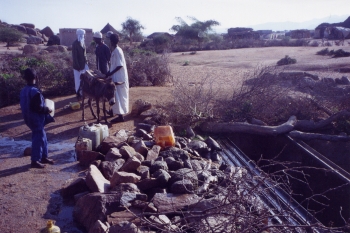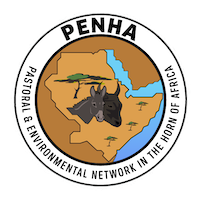PENHA in Ethiopia
The two largest pastoralist groups are the Afar, who live in the northeast and in neighbouring Eritrea and Djibouti, and the Somali, who occupy the huge Somali region in the south of the country, as well as Somalia/Somaliland and sections of northern Kenya.
In accordance with the Civil Society Organisations Proclamation No. 1113/2019, PENHA is a registered charity in Ethiopia with a registry number of 5287.
In Ethiopia, PENHA partners with Tropenbos International and other local and international organisation.
Country profile
Population
112 million
Agro-pastoralist population
15%
Surface area
1,104,300 km2
Land occupied by pastoralists
60%
Human Development Index (HDI)
0.470
Our work in Ethiopia

Improving pastoralist health
A locally-based health network in Liben Zone (Somali region) was established (2001 to 2005) to offer health advice and education as well as health services.
This Big Lottery funded project was specifically designed to meet the needs Liben Zone as far as possible drawing its personnel from within the communities served. This goal involves the provision of training for pastoral health extension facilitators and workers and traditional birth attendants…
Read moreThis Big Lottery funded project was specifically designed to meet the needs Liben Zone as far as possible drawing its personnel from within the communities served. This goal involves the provision of training for pastoral health extension facilitators and workers and traditional birth attendants as well as support for those trained throughout the period of the project.
The project was specifically designed to improve sexual and reproductive health in the area, including the provision of assistance in the areas of midwifery, female genital mutilation and HIV/AIDS. A significant result of the programme was the decision by the local community to ban female genital mutilation in the local village. A description of how the local community came to make this decision can be downloaded here as a PDF.
